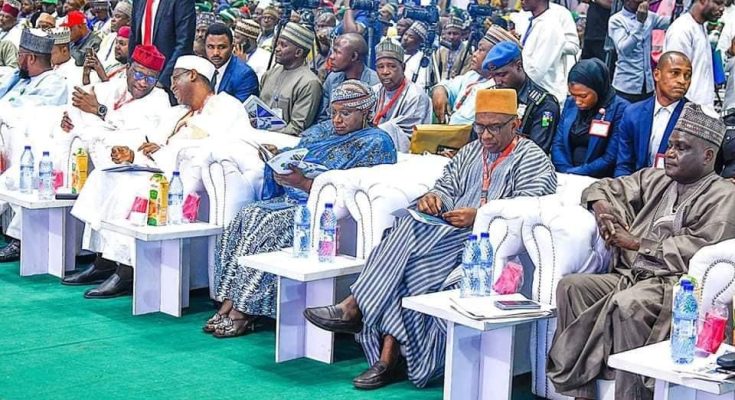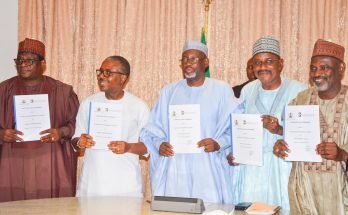Federal Government has stated that 50% Nigerians are poor and have weak purchasing power, while 80% Nigerians cannot afford mortgage housing due to poor access to land, high cost of construction and building materials as well as poor access to affordable housing finance.
The Minister of Housing and Urban Development, Arc. Ahmed Musa Dangiwa, stated this in his keynote address at the opening of the maiden Kaduna International Housing Exhibition on Monday, with the theme: “Kaduna Sustainable Housing Development- A Model for Northern Housing Reforms”.
Speaking on rate of housing deficit in Nigeria, the Minister said governments at all levels have to address the issue of affordability if they are to deliver sustainable housing policy.
According to the Minister, statistics have shown that almost half of Nigeria’s population of over 201 million are poor and have weak purchasing power. “In fact of the 43 million households, over 85% have less than N1.1 million purchasing power. Of this 40% (about 17.2million households fall into the poverty income group and 47% (about 20.2million) fall into the low-income group. Statistics reveal that Nigeria is a low-income country as it has only 13% of its population as middle class.”
He however said that the President Bola Ahmed Tinubu led government through the Ministry of Housing and Urban Development has taken measures to address the challenges including the plan to establish a National Social Housing Fund (NSHF).
Dangiwa explained that under the NSHF, Federal Government is aiming to pool funds from government budget, philanthropic organizations and well meaning Nigerians towards providing decent shelter for Nigerians with no income, low income and vulnerable brackets, who simply cannot afford to own their homes.
“Some of these units will be delivered at no cost. We have developed the concept note that is undergoing review. Once concluded we will present it to the Federal Executive Council (FEC) for approval and legislation. Social housing is not only a necessity, it is also a security insurance for the rich and the poor. Because housing is capital intensive and government has limited funds, we must find alternative collective avenues to help our brother and sisters who are underprivileged. It is for our collective good,” the Minister said.
Governor Uba Sani, who was represented by his Deputy, Dr. Hadiza Balarabe, in his address, said provision of affordable houses for Kaduna state citizens was a key priority of his administration, adding that he is committed to addressing the housing deficit across Kaduna state in line with President Bola Tinubu’s Renewed Hope Agenda.
He said that Kaduna state government had adopted a holistic approach towards filling the identified gap through partnership with local and international investors to frontally address it’s housing deficit.
“Qatar Charity, in partnership with the Kaduna state government, is constructing Mass Housing for the Less Privileged and Kaduna Economic City, all in Millennium City, Kaduna. I recently performed the groundbreaking for the construction of the 3,319 hectares Nuru Suraj Ungwar Dosa New Extension Layout. This project is being executed through a Public – Private Partnership. Nuru Suraj and Kaduna state government are working together to develop 35,000 plots for our people,” he said.
“The Social Housing Scheme was introduced to provide affordable accommodation as a social service for the vulnerable populace (the low income earners). Efficient design and construction methods, which are key indicators that drive the affordability target of the scheme, were employed,” he said.
The Managing Director Kaduna State Development and Property Company (KSDPC), Arc. Abubakar Rabiu announced the launch of two social initiatives: the Arewa Construction Academy and the KSDPC Housing Cooperative Society, demonstrating the state’s commitment to social investment, skill development, and tackling housing needs of low and middle-income families.
He said KSDPC was set to embark on certain key housing and housing infrastructure projects.
“These include the Ultramodern Mechanics Village for the Eastern Sector of Kaduna metropolis, featuring an Electric Vehicle (EV) Assembly Plant, CNG Conversion Stations, EV Charger Manufacturing, and strategically located EV charging points; A 5-star Hospital with Doctor Quarters; a private international university (ABSAAR); Building material village in (Eastern sector) and Truck and heavy duty mechanics village, which are expected to attract and facilitate the construction and delivery of at least 2,000 mixed-type housing units across Kaduna metropolis within 5 years,” he said.




